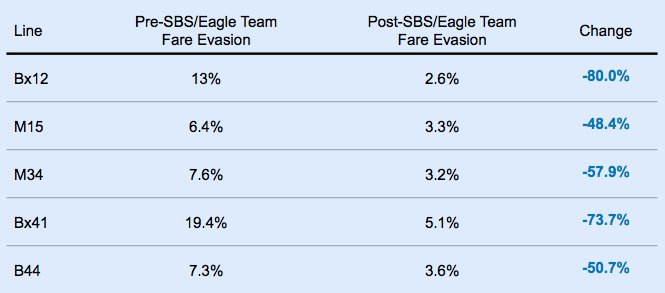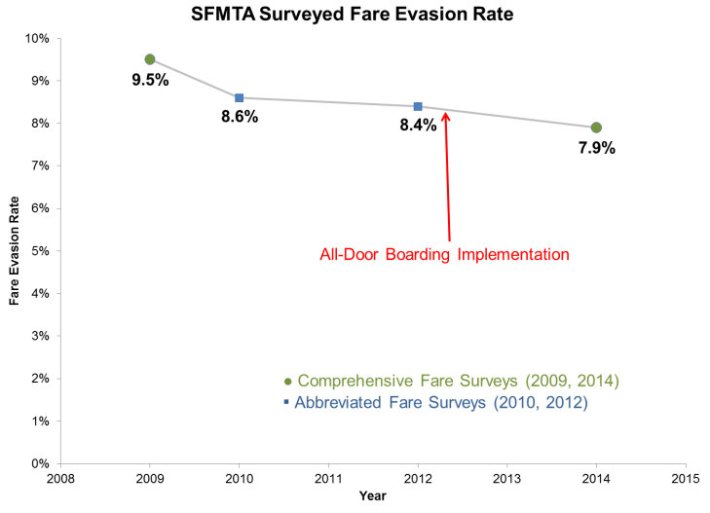
Last week, transit advocates called on the MTA to ensure that its next-generation fare payment system allows for "electronic proof of payment" on buses. By enabling bus riders to board without dipping a farecard or carrying a paper receipt, such a system would simplify and speed up the boarding process, saving passengers time on every route in the city.
In response, the MTA cited the "threat of fare evasion" as a reason not to embrace electronic proof of payment. But experience suggests there's no cause for concern. In fact, in San Francisco and right here in New York, proof of payment systems have led to less fare evasion, not more.
New York's Select Bus Service routes rely on proof of payment via ticket vending machines and paper receipts to speed up trips. To ensure people don't cheat the system, inspectors occasionally check for receipts on board. The MTA's own data show that on these routes, fare evasion is lower with the proof of payment system than without -- between 50 and 80 percent lower, depending on the route.
The experience has been similar in San Francisco, where the SF Municipal Transportation Agency implemented proof of payment and all-door boarding on its bus lines in 2012. A 2014 SFMTA report on all-door boarding showed that fare evasion continued to decline after the new fare system was implemented. The rate decreased from 9.5 percent to 7.9 percent between 2009 and 2014.

The "threat of fare evasion" with proof of payment systems is not actually much of a threat. But the benefits of electronic proof of payment are substantial.
On SBS routes, proof of payment has shaved about 10-15 percent off travel times, according to the MTA. But expanding the current vending-machine-and-receipt-based system to all 16,000 bus stops in the city could cost about $1 billion, according to the Regional Plan Association. The MTA's next fare payment system is a cost-effective opportunity to take the benefits of proof of payment systemwide, and bus riders can't afford for the agency to let it go to waste.





